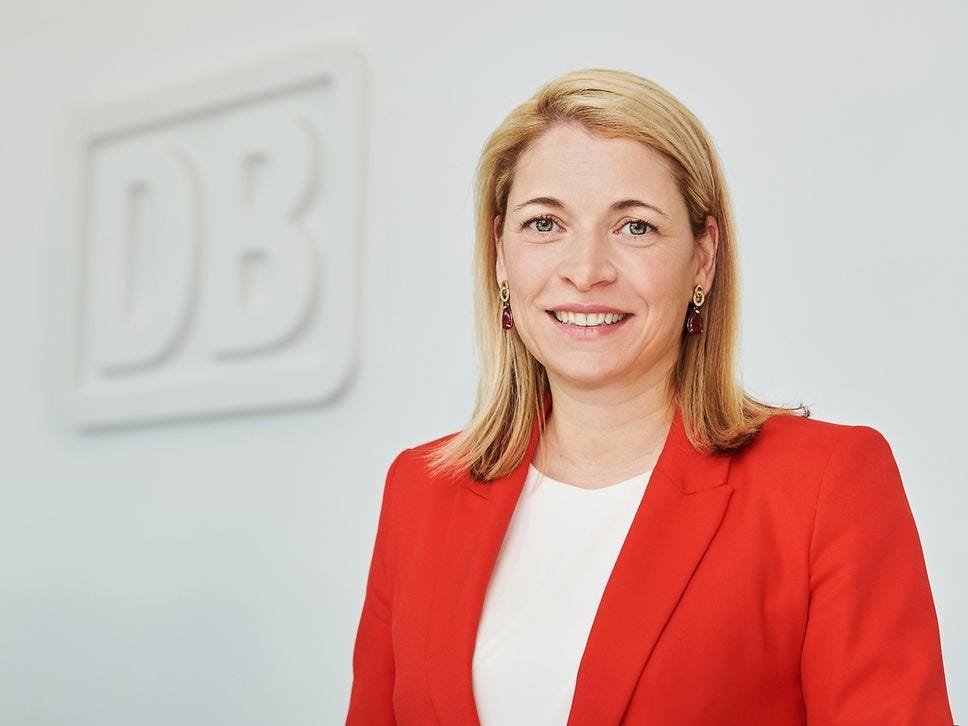Germany’s Rail Revolution: What Europe’s Largest Market Reform Signals for Continental Competition
Germany’s rail reform package is more than administrative restructuring – it is a structural break in how Europe’s largest market balances integration and competition. The governance shift at Deutsche Bahn (DB), the empowerment of InfraGO, and freight reform deadlines will ripple across European rail for the next decade.
The appointment of Evelyn Palla as DB’s next CEO (from 1 October 2025) and the decision, after Dirk Rompf’s withdrawal, that Philipp Nagl remains CEO of InfraGO, underline Berlin’s pivot away from the traditional integrated model. The government’s reform agenda explicitly plans to transfer DB Navigator to InfraGO to strengthen neutrality, but implementation details are still to be defined. Crucially, EU law mandates non-discrimination—not an app transfer—so Germany is going beyond minimum EU requirements in its chosen governance design. Just as important, Palla will be the first female CEO in Deutsche Bahn’s 190-year history.
Data points also need careful framing. DB reports more than 78 million downloads of the Navigator app, while independent analytics estimated under 20 million monthly active users in 2024/25. Treat MAU figures as indicative rather than confirmed.
The timing is deliberate. With the Fourth Railway Package fully in force and the European Commission reviewing track access charges, Berlin positions itself ahead of potential new requirements rather than reacting later.
Competition Dynamics Across Borders
For neighbors, the reform creates both openings and pressure. Dutch, Danish and Austrian operators gain a level playing field in cross-border services. NS International, DSB and ÖBB can expect fairer access to timetables and ticketing, supporting expansion plans.
Private challengers like FlixTrain are the immediate winners. Equal visibility in Navigator – the primary journey planner – could be a game-changer for market share. Symbolically, Germany has chosen competition over protection.
But the reform also forces others to move. France’s reluctance to open domestic high-speed routes now looks increasingly isolated. The Netherlands’ debate on NS’s future structure gains urgency. Even Switzerland must test whether its concession model still looks competitive.
Track Access Charges (TAC): Berlin also intends to reform TAC by 1 January 2027; details will shape competitive entry conditions as much as governance changes.
The Single Wagonload Gamble
Freight reform is the boldest element. DB Cargo is targeted to return to profit by 2026 under Germany’s agenda, while all railway undertakings must achieve durable profitability by 2028. In parallel, the EU’s 2024 state-aid decision for DB Cargo hinges on a restructuring plan ensuring viability by end-2026. Either way, the pressure is immediate.
For single wagonload (SWL) specifically, the signal is not a hard profit mandate but rather deep review and potential downsizing to reach overall profitability. Reports in 2025 show DB Cargo considering major reductions or even near-exit from SWL. Still, the outcome will define whether wagonload services remain viable in Europe’s largest market—or whether structural consolidation and road modal shift accelerate.
InfraGO and Investment Signals
InfraGO’s strengthened independence changes the investment map. Free from DB Group priorities, the manager can focus on corridor bottlenecks and freight capacity rather than passenger-centric choices. A more autonomous InfraGO can also align more directly with peers like Infrabel and ProRail on the Rhine-Alpine and North Sea-Baltic corridors. The reform agenda further elevates InfraGO’s customer-facing roles, including timetables and Navigator, which—if executed as promised—should support non-discriminatory cross-border access.
Market Evolution Timeline
The phased implementation creates distinct periods:
2025–2026: Aggressive DB Cargo restructuring; first high-profile tests of InfraGO’s neutrality in passenger access disputes.
2027–2028: Outcome of the SWL review becomes clear – triggering market exits or new entries.
2029–2030: Judgment on whether Germany’s bet delivers. If punctuality improves and modal shift accelerates, pressure builds for others to follow. If services deteriorate, expect debates on re-integration and subsidies.
Strategic Lessons for Europe
Germany’s voluntary over-compliance with EU separation rules shows confidence that competition, not integration, drives performance. The precedent is powerful: if Berlin dismantles its national champion model, other capitals face reduced political cover for protectionism.
The risk is execution. Timelines are tight, targets ambitious, and failure could undermine Europe’s liberalization agenda. Success would validate competition as the driver of efficiency and investment. Failure could fuel a counter-movement towards state control.
Either outcome will shape the next generation of European rail.


